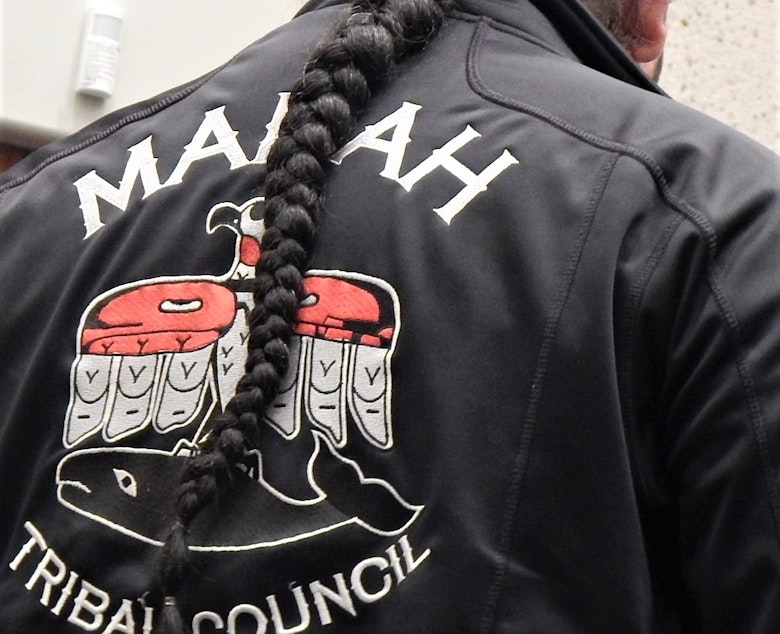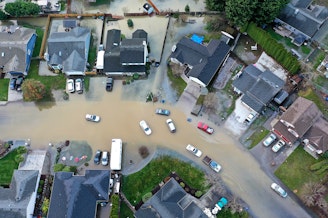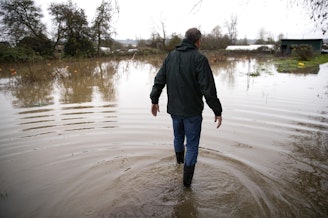Makah Tribe takes big step toward resuming gray whale hunt

A federal judge has moved the Makah Tribe a big step forward in its 16-year-quest to resume hunting gray whales.
U.S. Coast Guard administrative law judge George Jordan largely rejected animal welfare groups’ complaints that the hunt sought by the Makahs would endanger the whales of the eastern North Pacific.
He recommended that the Makah Tribe be allowed to conduct a hunt largely as the National Oceanic Atmospheric Administration has proposed, though he proposed new restrictions on hunting in the winter and spring to protect a small subpopulation of whales that occasionally wander from the Asian side of the Pacific Ocean into waters off Washington state.
The federal agency will make a final decision after a twenty-day public comment period.
The Makahs applied for a waiver in 2005 under the federal Marine Mammal Protection Act to hunt gray whales, a right the tribe retained in the Treaty of Neah Bay of 1855.
In a 156-page ruling delivered nearly two years after a Nov. 2019 hearing, Jordan found that, based on the best available science, a limited hunt would not threaten the eastern North Pacific population of gray whales. He said the proposed hunt of 1 to 3 gray whales a year and up to 25 in a decade would “not meaningfully affect its distribution, breeding, or migratory habits.”
Sponsored
Jordan said the Animal Welfare Institute’s scientific evidence “was not convincing” and that anti-whaling group Sea Shepherd Conservation Society’s expert witnesses were credible but failed to demonstrate that allowing the hunt would violate the Marine Mammal Protection Act.
Makah Tribal Council vice chair Patrick DePoe said the decision is a “huge” step in a very long process.
“There's definitely excitement there in the community,” he said. “The fact that it's moving, the fact that we're seeing positive outcomes, is refreshing.”
Even if the Makah Tribe gains the exemption from federal marine mammal protections, the it would have to apply for a federal permit, a process that includes more opportunities for public input, before tribal members can get out on the water and hunt. DePoe said the tribe would keep fighting to resume its tradition, however long it takes.
“This is who we are,” he said. “Understand that this is always going to be who we are.”
Sponsored
The Sea Shepherd Conservation Society told the Associated Press Friday it was reviewing the decision and had no immediate comment.
The tribe and other parties in the case have expressed frustration at the long wait for this decision.
“I can assure you that my staff and I are also frustrated,” Jordan wrote a NOAA official in July. He said the technical nature of the case as well as pandemic-related difficulties bogged it down.
“Honestly, the frustrating part is it's secured in our treaty. You know we ceded 400,000 acres of land,” DePoe said.
About 20,580 gray whales swim up and down the Pacific Coast, a 24% decline since 2016. That decline coincides with a spike since 2019 of whales washing up dead on beaches from California to Alaska.
Sponsored
NOAA scientists in January said these sorts of “unusual mortality events” occur periodically, after which the whales’ numbers rebound again.
“Large-scale fluctuations of this nature are not rare,” the federal researchers wrote. “The observed declines in abundance appear to represent short-term events that have not resulted in any detectable longer-term impacts on the population.”
In pre-pandemic times, DePoe said, Friday’s decision would have been cause for gathering and celebration in Neah Bay.
“Normally we would have had a general council meeting, invited everybody to the gymnasium or tribal Hall, then had a meeting to let everybody know what was going on, possibly dinner, sit down and do some songs and share some stories,” DePoe said. “But because of what everybody's dealing with, those kinds of things are not the responsible thing to do right now.”
The Makah Reservation, at the tip of the Olympic Peninsula, remains closed to outsiders, part of the tribal government’s efforts to contain the Covid-19 pandemic. DePoe said the tribe has had no deaths from the virus.
Sponsored
Treaties signed by many tribes in the 1850s in what is now Washington state guarantee education and health care—even the right to vaccines—as well as the right to fish on the traditional territories that the tribes surrendered.
Only the Makahs' Treaty of Neah Bay explicitly guarantees the right to hunt whales as well.
Courts have also interpreted the right of “taking fish" in the Treaty of Olympia, signed by the Hoh, Queets, Quileute, and Quinault tribes in 1856, to include hunting marine mammals.
Editor’s note, 4 p.m., 9/27/2021: This story has been updated to include other Washington tribes’ treaty rights to hunt whales.




